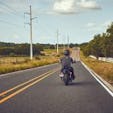KOKORO™ is, simply put, the hardest physical and mental training that a civilian can get. A weekend boot camp created by ex-Navy SEAL, author, and businessman Mark Divine, it’s modeled after the SEALs’ infamous Hell Week, and designed to forge ultimate mental toughness. It costs $3,000 to attend, there are no refunds, and you can expect to be subjected to the most extreme duress the human body can tolerate for 53 straight hours. Who, you may be wondering, would sign up for that?
The answer is Brad Womack, age 48, and a bar and restaurateur in Austin, TX. In other words, a man who, by most logic, had no business being there. But then again, Womack is no ordinary man… he’s an Onnit Gym member.
After he got the sand out of his ears and the blisters off his feet, Womack talked to us about the most trying experience of his life, and how, in contrast to what action movies taught us, it’s teamwork and friendship that really make a person unbreakable.
Onnit: What is KOKORO™?
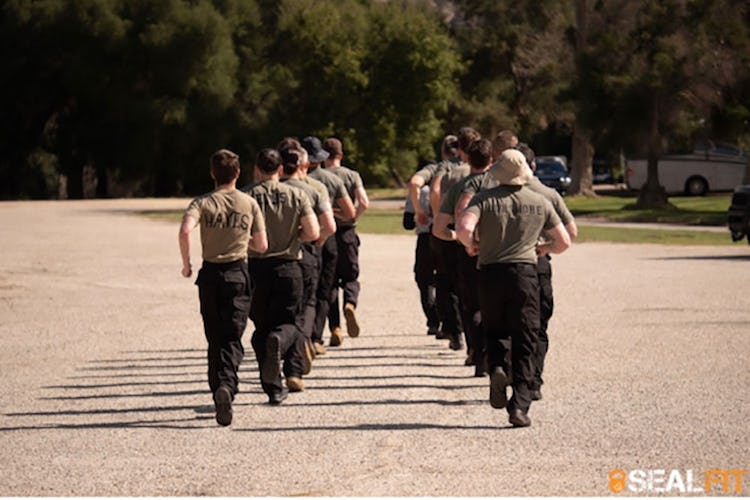
Womack: It’s basically the same training Navy SEALs do in their Hell Week, or at least the first couple days of it. You don’t do actual warfare training, but everything else. It started as training for guys who were going into BUDs [Basic Underwater Demolition, the SEALs’ introductory course], and when they realized they had a good success rate with it, they opened KOKORO™ to civilians. But, they said, “We’re not going to make it any easier on them.”
Kokoro is a Japanese word that means a blending of heart, mind, and spirit, because that’s what you need to get through the training. The event is 53 straight hours—you don’t sleep a wink—and you’re being tested physically, mentally, and emotionally the whole time. KOKORO™ has been written up in every magazine you can imagine and it’s always billed as the very hardest thing a civilian can do.
My group started with 15 people and only six of us finished. Two were pulled for hypothermia, some voluntarily quit, and some had injuries. And these are the toughest kinds of people—pro athletes, UFC fighters, CEOs of companies, linemen for electric companies… The event only has a 30% completion rate.
When you’re on hour 25, and it’s cold, and muddy, and you realize you’re not even halfway done… that you’ve got another sunset and another sunrise… you really have to be mentally strong.
Where and when was it?
It’s done in Temecula, California, an hour north of San Diego. They have three KOKORO™ events a year—in March, July, and October. I was originally going to do the one in October last year for my second try, but it was cancelled due to Covid. So I did the one in March this year, the 12th to the 14th.
Let’s back up a moment. Your “second try??” You mean you put yourself through this meat grinder before?
I did! In July 2018. They had a heat wave that year and when I showed up it was 108 degrees. Right out of the gate, I couldn’t stop throwing up. They make you do Murph [the CrossFit WOD] as part of the physical training, and we were dropping like flies. They have a Navy medic with you 24/7, and I made it to hour 8 or 9, but the medic finally said, “Womack, if you throw up one more time, I have to pull you.” I did, and so he did.
I went to the restroom, and when I peed, it was literally black. It looked like Coca-Cola. It turned out to be rhabdomyolysis [when muscle fibers die and release their contents into the bloodstream]. I wound up in the hospital for four days, and the doctors said my kidneys were functioning at 30%. I had trained eight or nine months specifically for that event, so to be pulled early was just devastating.
I had to give it a second shot. I just wanted to show that I am as capable as I think I am. I wanted to prove it to myself.
You own a bunch of bars and restaurants—a very successful man by most standards. And most guys your age don’t want to push themselves that hard physically. Why did you want to put yourself through KOKORO™ at all?
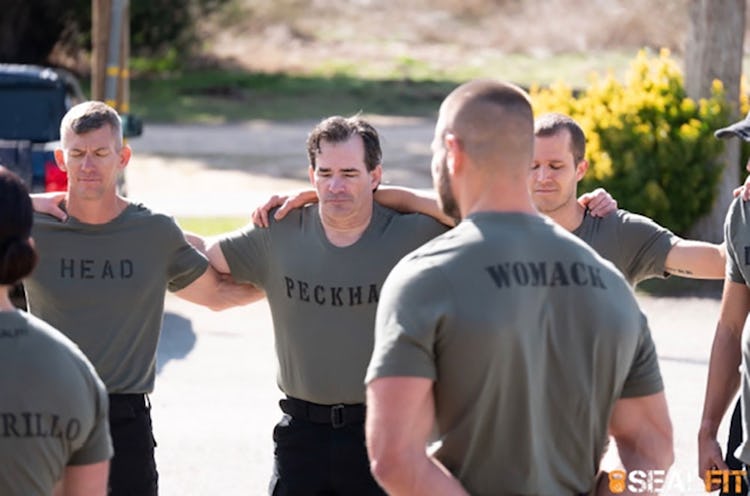
I’ve always been the type of guy who wants to push himself. That’s why I joined Onnit initially. I’ve always wanted to better myself, and I live and breathe Onnit’s Total Human Optimization philosophy. I want to know that I’m giving 100% all the time. That’s what keeps me going. Part of it is to battle age, and getting slow mentally… I just want to be the very best version of myself that I can be.
Also, 2020 was crippling for the restaurant industry. I’m very pleased to tell you that we’re finally bouncing back, but that was one of my main motivators. I wanted to develop my mental tenacity. I wanted to be able to better handle times of adversity and stress like what we’ve seen with the pandemic. I hate to admit it, but my mind isn’t as strong as I’d like it to be sometimes.
And I have such respect for military personnel—anyone who serves, not just Special Forces. I just wanted to see if I could hang with them, if only for a weekend.
But going into KOKORO™, they tell you that you have to have very solid reasons for what you’re doing. You need a why, and it can’t just be, “I want to try KOKORO™.” You won’t last.
The motivation to train like a Navy SEAL has to come from someplace very deep, and probably dark. Is there something in your past that drives you to push yourself like this?
My brothers and I grew up in an environment where there wasn’t much love shown. My entire family struggles with mental health issues—depression, lack of self-esteem—and there was physical abuse too. My brothers and I were told, “You’re not good enough; you’ll never be anything.” That’s a tough thing to overcome. It gave me imposter syndrome, which is when you reach whatever level you deem to be success in life and you question whether you’re even supposed to be there. Your whole life you’re asking, “Do I fit in?”
But I’ve learned in my life that you can control where you take yourself, and when you allow yourself to be in control of your own trajectory, what a powerful feeling that is. It’s the best feeling you can have. By pushing myself to accomplish hard things, I’ve overcome some dark places mentally and strengthened my mind. So I think that led me to KOKORO™.
Tell us about the training you did to prepare for KOKORO™.
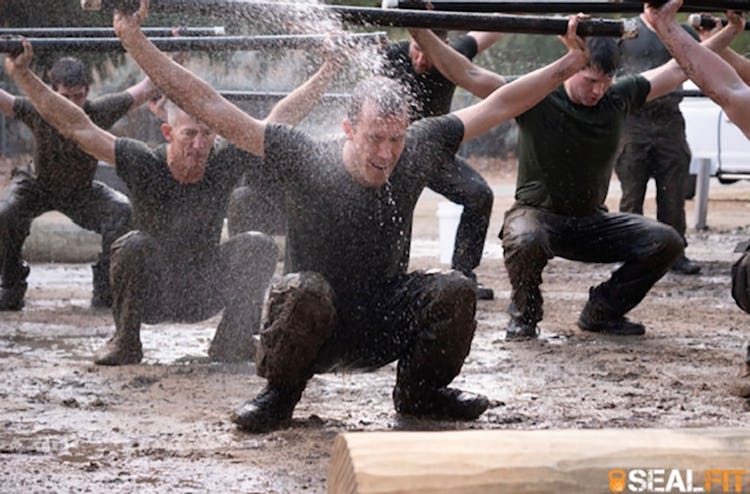
I trained at Onnit Gym [in Austin, TX] with Juan Leija [Director of Fitness Programming; follow him on Instagram, juannit_247]. I want to say that your facility, your trainers, and the whole mentality of Onnit is amazing. I showed up in such great shape that some of my KOKORO™ teammates actually thanked me for being so well-conditioned—because it made it easier on them. And at 48, I was the second-oldest guy there! A few of them asked me where I trained and, sure enough, the majority of them knew about Onnit. These are people who look for the very best, and Onnit is the very best.
Before we started the training, Juan asked me to send him videos of the types of exercises I was going to have to do at KOKORO™. He wanted to be as prepared as possible to write a training program for it, so he really educated himself on the event. We did dedicated, KOKORO™-focused training for about five months leading up to it.
The key to the training was always keeping my heart-rate elevated. You’re in fight-or-flight mode pretty much the whole event, so you have to be conditioned, and you need to get used to training under duress. So if I was doing an exercise like squats, I might do 20 reps and then immediately run to the ski ERG or the bike. You carry a log a lot at KOKORO™, so Juan had me do presses and lunges with a log-shaped barbell. We did sled drags to simulate dragging a buddy through deep sand.
I remember one circuit that was 20 reps of squats into 10 box jumps and then a single-arm farmer’s carry for 50 yards—then switch arms for 50 yards back. Rest a minute, and repeat. Lots and lots of sprinting and hiking with a weighted rucksack too. I even drove out to Big Bend [National Park in west Texas] to practice ruck hiking—carrying a 60-pound pack for 16 miles on the trails.
There were times when I thought I was going to die in the middle of the Onnit Gym, but one thing I really respected about Juan was that he never let up. He’d say, “No breaks. This is what you asked for. You may hate me now but you’re gonna thank me later.” He treated me like I was a professional athlete, which I’m very far from. But I sure felt like I was getting the best quality training.
I get choked up thinking about it—that an elite trainer who works with world-class athletes would take the time to help me be the best version of myself. I couldn’t have gotten in shape for KOKORO™ on my own. I couldn’t have gotten into the same shape with another trainer. I will forever be grateful to Juan and Onnit for that.
Also, I’m proud to say that I didn’t have a single injury throughout the event. That’s probably thanks to all the mobility and stretching Juan had me do.
OK, it’s time for the main event… Tell us what KOKORO™ is like. Let’s start from the moment you got there.
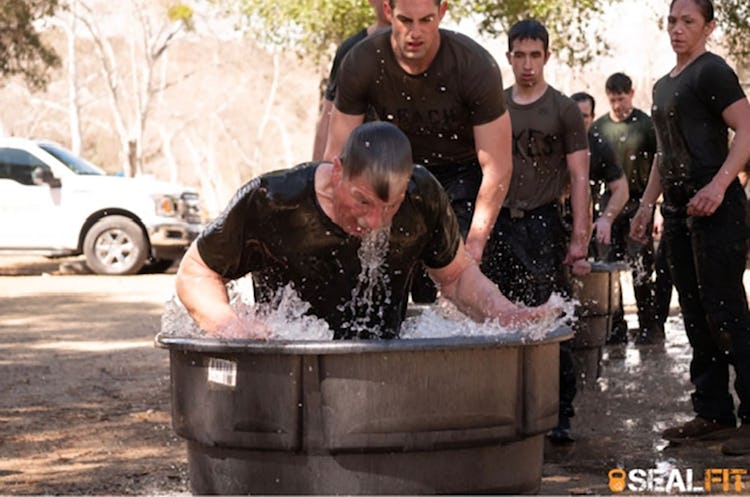
We checked in at 9 a.m. Friday at Vail Lake Resort in Temecula. Right off the bat, we had to run two or three miles from the front gate to the basecamp—with all our gear in hand. We got to the base, what they call the Grinder, and Commander Mark Divine came out and addressed us. He gave a brief introduction, basically saying, “Thank you for being here, but this is about to get really, really hard.”
That’s when what they call the “welcome party” arrived. All of a sudden, smoke bombs go off and you hear sirens wailing and they start spraying you with hoses. All stuff that’s designed to disorient you. While all that’s going on, they have you doing countless burpees, pushups, and air squats, and dunking yourself into troughs of ice water. The coaches are giving different commands, so you don’t know whose to follow, and that’s all by design. Mentally, you’re thinking, “What the hell is going on?,” and physically, your heart rate is through the roof. We lost two or three people during those first few hours.
After that, we rucked six miles to a hill for hill sprints and stretcher carries—one guy lies on a stretcher while two others carry him, and you rotate. This isn’t just to make you tired, but also to build teamwork and communication. They have a saying in the SEALs that “Rambos don’t make it,” meaning that you can be a physical specimen, but if you want to go out there and prove that you’re a bad ass by working alone, you’re not going to last long. You need your team for mental and physical support.
Next, you take the Physical Standards Test, which every Navy SEAL candidate has to do. It wouldn’t be that hard by itself, but you do it after everything I just described, so it’s awful. It’s 50 pushups, 50 situps, 50 air squats, 10 dead-hang pullups, and then a one-mile run in under nine-and-a-half minutes. After that, you do the Murph WOD, which is what stopped me last time: another mile run, 100 pullups, 200 pushups, 300 air squats, and an extra mile run at the end—all while wearing a 20-pound weight vest. You have to finish it in 70 minutes or they’ll automatically drop you from KOKORO™.
Then, finally, they allowed us to eat.
How was the food?
They gave us MRE’s—meals ready to eat. They’re everything you think they are, packaged not to spoil. They’re terrible. The next day, though, we got breakfast burritos, and our last morning there, we had a breakfast buffet with eggs and pancakes. We had to eat it all within 15 minutes, but at that point, any food felt so good [laughs].
And throughout the whole event they give you water with electrolyte powder mixed in to keep you hydrated.
Was that it for Day 1?
Except for the 14-mile ruck after dinner when it started raining on us… And then we did this cognitive test where we had to walk 300 yards and pick up a backpack with 10 objects in it. You had to memorize those 10, walk back, and tell your teammates what you saw, and God help you if you got it wrong. They never told us what test was coming next, so you had to be ready for anything.
How about Day 2?
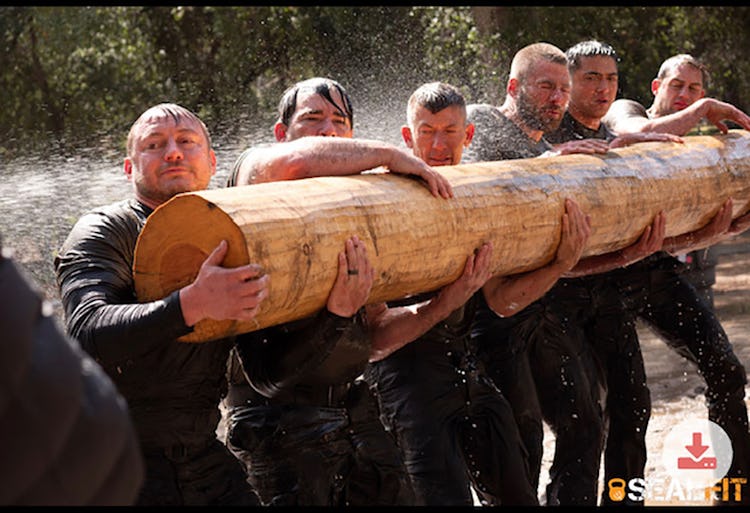
The second day is such a blur. Nobody is allowed watches and you don’t sleep, so forgive me if I’m mixed up on some details. We were basically delirious by the end.
They bused us down to the Pacific Ocean, but we had to ruck to the water, which was about 10 to 12 miles. There, they had us lock arms and lie down with our heads right where the waves come up to the sand. It’s to condition your body to the cold, and that water is freezing.
We did a lot of log PT [physical training]. Carrying the log overhead like it was a boat. Lunges with the log in the sand, and dragging it. By this point, all the guys were really coming together as a team. By the end of it, we looked and sounded like one person—which is exactly what the coaches are looking for.
When we got back to base, Commander Divine showed up again and ran us through—of all things—yoga. This felt great, because your body is really seizing up by that point. He told us to close our eyes, which up till then we weren’t allowed to do at all, so we thought we were done. But it’s the worst mind-screw ever because he hit us with buckets of ice water, and then it was back to the smoke and sirens and burpees for another couple hours.
This is unbelievable. Be honest—was there ever a moment you were tempted to quit?
There was never one time in that 53 hours that I questioned my ability, or was tempted to quit. Of course, you go through moments where you think, “I’m colder than I’ve ever been in my life,” and “I’d love a hot shower right now.” But I can honestly say that I wanted to finish so badly there wasn’t a time in my mind where I thought it would be real good to quit. I showed up knowing I was going to do it no matter how tough it was.
And I’ll tell you, my respect for Onnit was a big motivator. At different times during the event, I would think about the people who work at the front desk of the gym, the manager of the gym, and the people I take classes with… I wasn’t going to come back to them and say that Onnit took a loss! That just wasn’t going to happen. I wasn’t going to allow myself to let you guys down.
We were secured—which means we completed the event—sometime around 2 p.m. on Sunday.
And how did you spend the next day?
They very strongly suggest that for 24 hours afterward you don’t fly or drive, so I had already booked a hotel room in Temecula. I felt like I’d been in a car wreck—the muscle soreness was to a degree I’d never known. But the feeling of accomplishment was so good it kind of masks that pain.
I showered at the hotel, and that was the best shower I’ve had in my whole life! [Laughs] There was sand coming out of my ears. I had been awake for almost 65 hours straight, so I went to bed and slept about six hours. Then I woke up, ordered some food, and slept another 10–12 hours. Woke up, ordered food, slept another eight. I didn’t set foot in a gym again till a week later.
Do you think you could have made it as a Navy SEAL?
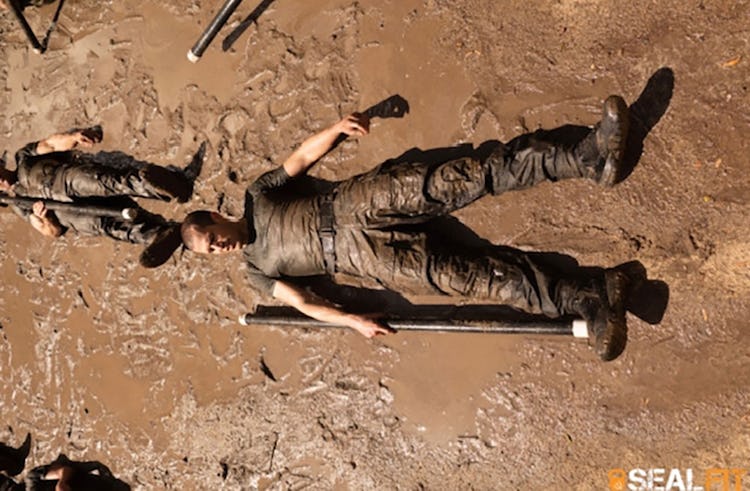
In the back of my mind, I always wondered if I could have been one. Of course, it’s real easy to sit on a couch and say, “Yeah, I could do that.” But getting a little taste of it affirmed that thought and I think now that yeah, maybe I could have done it. But Hell Week is seven days and BUDs training goes 24 weeks, so it’s easy for me to sit here and say I could have done it after completing just a weekend course. I may have been able to tough it out, but who knows? Humbly speaking, maybe I could have.
So was it worth it? What did you get out of KOKORO™?
Those 15 people, not just the six of us who secured, will forever be family to me for the rest of my life.
I’ve also become a much better businessman since then. I’ve learned to shut the hell up and realize that some people are going to be better than I am at many facets of our operation. I’ve learned to let go of ego and admit what my weaknesses are. I understand now that there’s no way in hell that I can do any of the work I do on my own. I’ve learned to rely on a team. I mean I need every single one of those 100-plus people that my business partners and I employ. I always say they work with us, not for us. We all work together.
I have learned how to be a better listener. People want to be heard, and it’s such a profound thing to see someone’s reaction when they realize that we are shutting up and listening to their invaluable input. Sure enough, in a short amount of time, I already feel like my team is a more cohesive unit.
It’s such a rewarding experience seeing people coming into their own simply because they were allowed to excel.
That sounds a lot like our Onnit Tribe, the social media support network for Onnit fans. Anyway, what’s next for you?
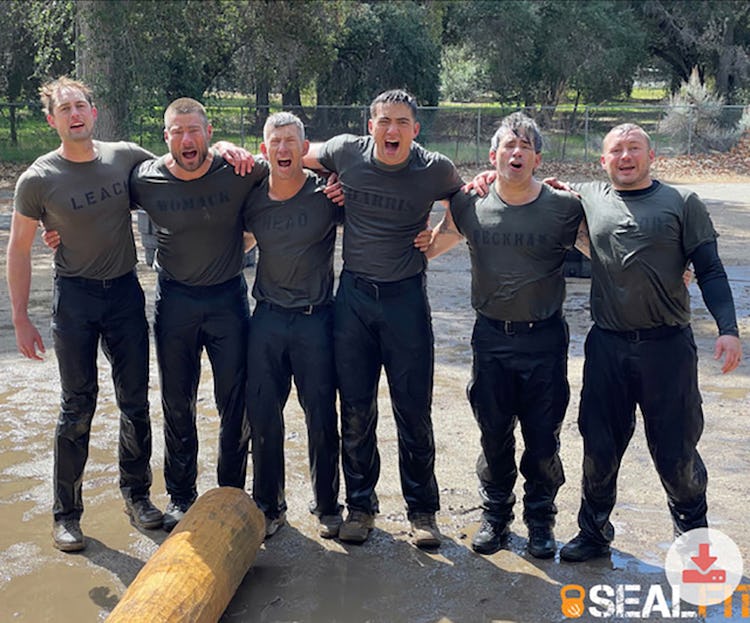
The SEALfit team [the active and ex SEALs who run the event] asked if I would be interested in interning as a coach in July for the next KOKORO™. It probably just means loading the ice baths, but I can’t wait. Three of my teammates from this KOKORO™ are going to try it again, so hopefully I’ll be able to encourage them.
As far as other physical challenges in the future, I don’t know, because nothing will ever compare to KOKORO™. I don’t know what’s next, but I have to find something. I always have to have a goal on the horizon, and a pretty lofty one, so rest assured, I’ll find it.
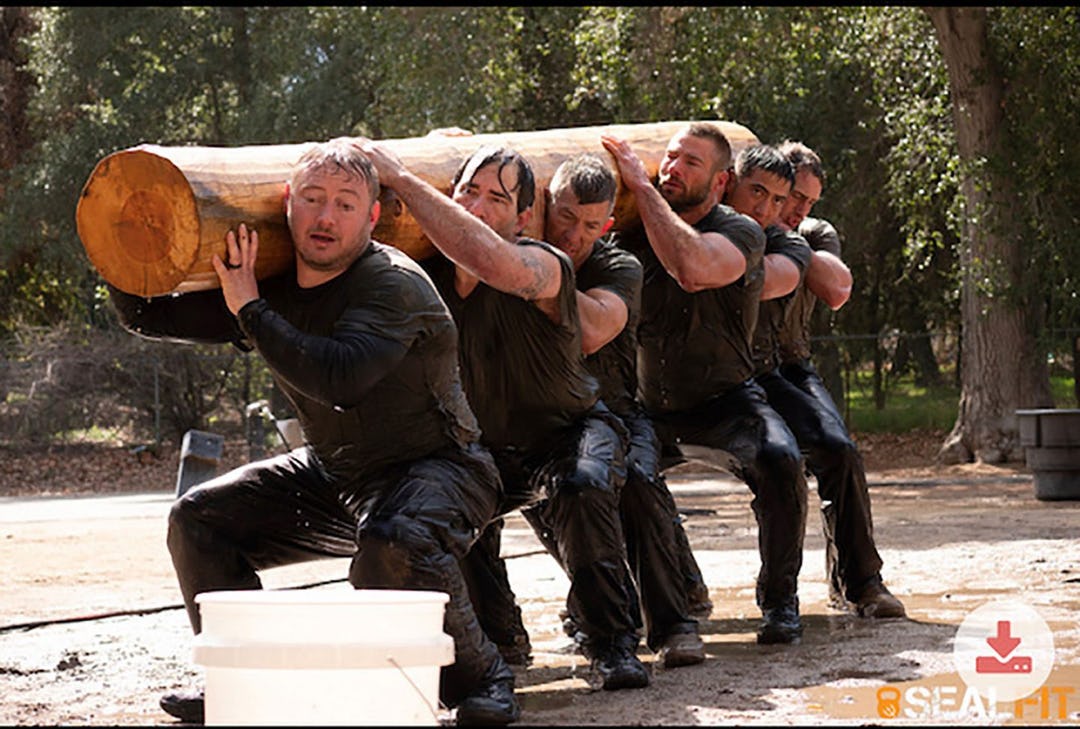
)

